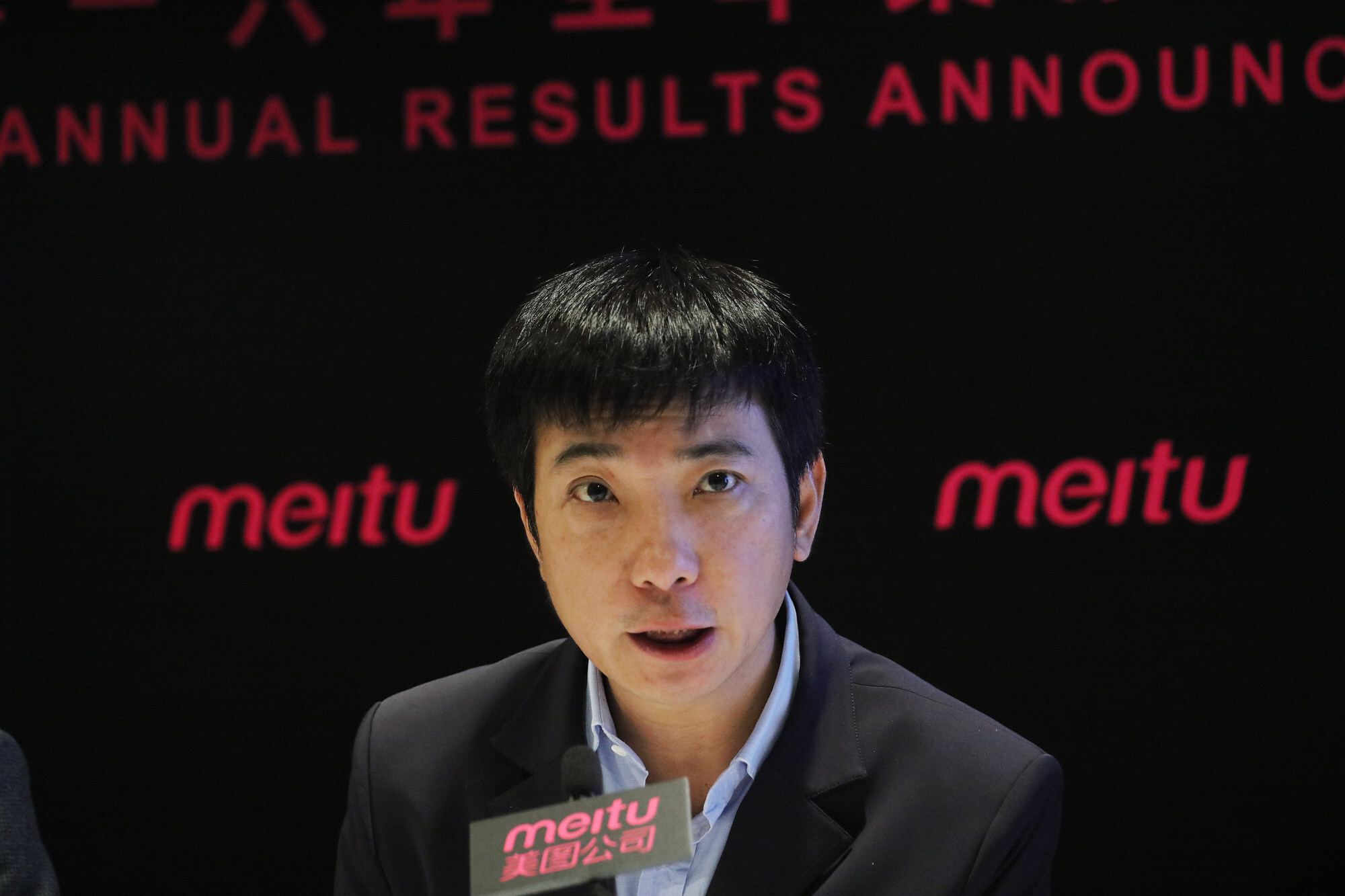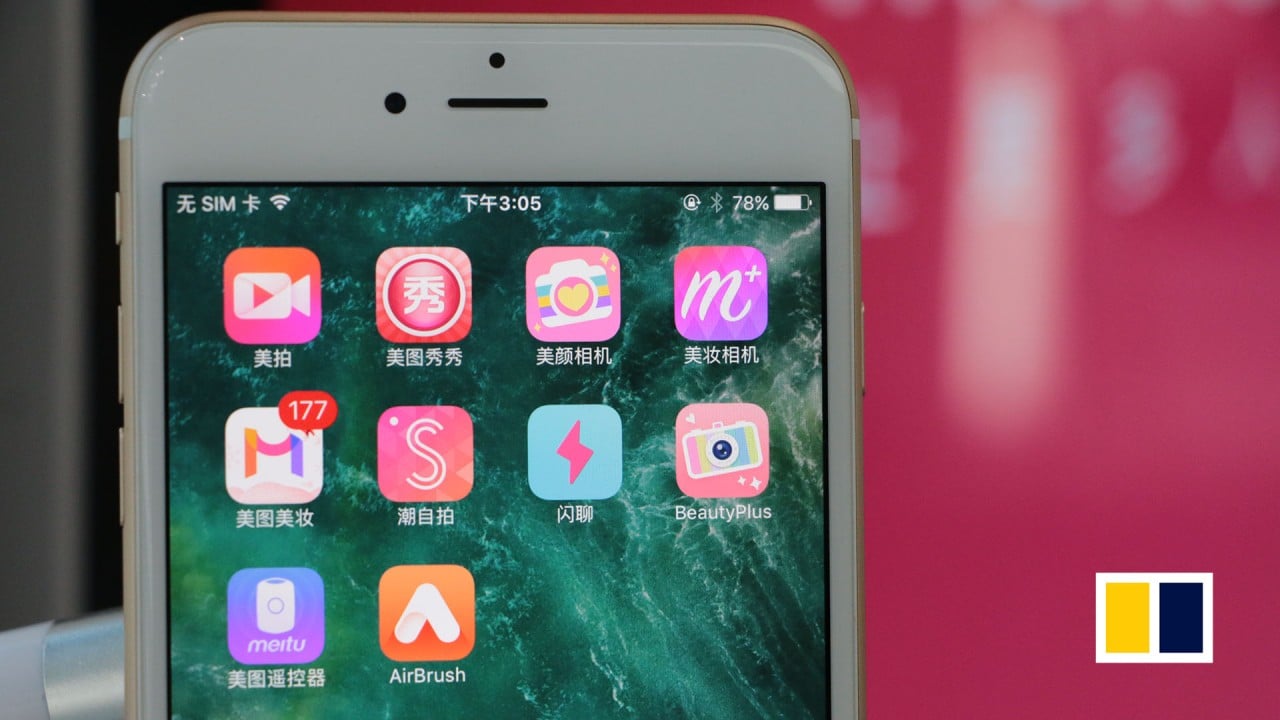
China’s beauty app maker Meitu boasts first bitcoin and ether investment for a Hong Kong-listed company
- The Chinese selfie app maker said it bought US$40 million worth of cryptocurrencies
- Tesla, Square and other US tech companies have made similar forays into cryptocurrencies in recent months
Chinese tech company Meitu, best known for its apps that let users make themselves look slimmer or fairer in their selfies, announced on Sunday that it bought US$22.1 million worth of ether and US$17.9 million worth of bitcoin, a move that its co-founder boasted as unprecedented for a Hong Kong-listed company.
Meitu said the purchases were part of a cryptocurrency investment plan previously approved by the company’s board of directors, which allows it to make a net purchase of up to US$100 million worth of cryptocurrencies.
“Subsequent purchases or sales of cryptocurrencies pursuant to the cryptocurrency investment plan will be executed at the board’s discretion according to market conditions,” the company said.
Mike Cai Wensheng, Meitu’s co-founder and chairman, wrote on Chinese social media platform WeChat that his company is the first Hong Kong-listed firm to hold bitcoin and the world’s first listed company to hold ether in its treasury.
Shares of Meitu in Hong Kong rose by 14 per cent Monday morning before falling by over 6 per cent at market close.

Investing in bitcoin, which Meitu calls a potentially “superior form to other alternative stores of value such as gold, precious stone and real estate”, has become a fashionable treasury management strategy for tech firms.
Meitu said it believes “cryptocurrencies have ample room for appreciation in value” and can help diversify its treasury in addition to cash, which is under depreciation pressure as central banks around the world aggressively increase money supply.
The Xiamen, China-based company, however, would not be able to hold any cryptocurrencies in its mainland Chinese accounts as cryptocurrency transactions are illegal in China. As such, Meitu’s crypto assets are likely to be held in offshore accounts, such as those in Hong Kong, which adheres to different laws from the mainland.
China has taken a firm stance on cryptocurrencies, most notably imposing a ban on initial coin offerings in 2017 – but bitcoin’s eye-popping rally in recent months has coincided with a resurgence of interest in cryptocurrencies among Chinese companies.
Meitu said its bitcoin and ether purchases were part of a cryptocurrency investment plan previously approved by the company’s board of directors, which allows it to make a net purchase of up to US$100 million worth of cryptocurrencies.
“Subsequent purchases or sales of cryptocurrencies pursuant to the cryptocurrency investment plan will be executed at the board’s discretion according to market conditions,” the company said.
Meitu said its cryptocurrency investments are funded by the company’s existing cash reserve but excludes proceeds from its initial public offering in 2016. According to Meitu’s financial report for the first half of 2020, the company held 1.7 billion yuan (US$261 million) of short-term bank deposits and 649 million yuan of cash and equivalents.
Still, the move has raised questions over whether the volatile price of bitcoin could expose minority investors to bigger risks. Bitcoin’s value rose more than five times over the past 12 months, but only after plunging more than 80 per cent in 2019.
Besides their investment values, holding cryptocurrencies might also allow listed companies to avoid taxes in some instances.
In Hong Kong, securities or commodities held for long-term investment purposes can potentially qualify as capital and therefore be exempted from taxes. Unlike some other markets, the city does not tax capital gains.
If the cryptocurrencies were held for short-term trading purposes, however, the associated trading income could be subject to profits tax, said William Chan, a tax partner at accounting firm Grant Thornton in Hong Kong.
“There will be an incentive for listed companies to hold cryptocurrencies as long term investment to avoid incurring taxes in Hong Kong,” said Chan, “but whether it could indeed qualify for such treatment depends on a host of different considerations.”
Under Hong Kong’s accounting rules, listed companies must disclose the latest valuations of their digital assets in their quarterly and annual financial reports.
Meitu appears to have bigger ambitions in cryptocurrencies than just treasury ownership. While it said that holding bitcoin forms part of its “asset allocation strategy”, holding ether – the native token of the ethereum blockchain – is “a preparation to enter the blockchain industry”.
The company said it is currently evaluating the feasibility of integrating blockchain technologies into its overseas businesses, launching ethereum-based decentralised apps (dApps) and investing in blockchain-based projects outside China.
Founded in 2008 by Cai and current CEO Wu Xinhong, Meitu raised US$630 million when it went public in Hong Kong in 2016, bringing the company’s market cap to US$4.6 billion. Its value has since shrunk to US$1.7 billion.
Cai has put his money into bitcoin and related companies over the years, having invested in global bitcoin exchange OKCoin in 2014 and bought his first bitcoin in the same year.



